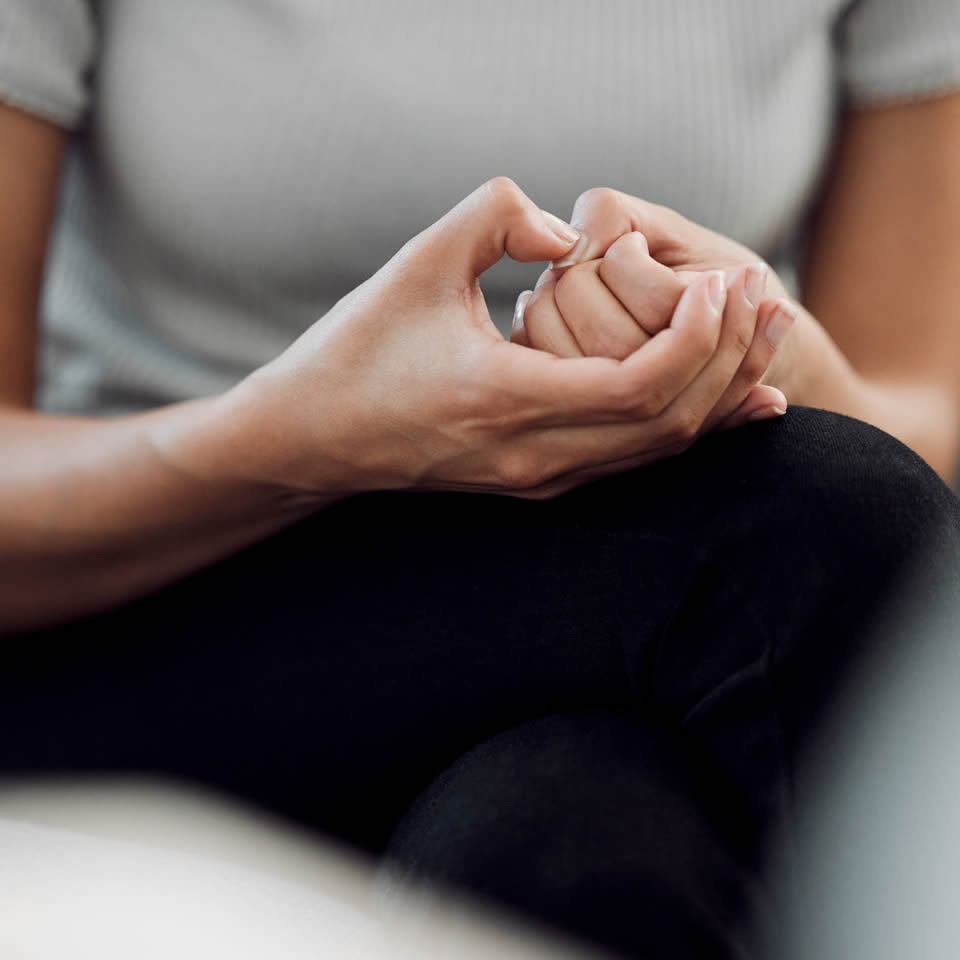13 Jun How massage can help with anxiety


More than 20 million people in the UK suffer with anxiety – a number that rises each year.
The pressures of modern life, cost of living crisis, burn-out culture and the constant demand for connection can all contribute to anxiety which can become debilitating over time and affect our quality of life and overall mental health.
What is anxiety?
Anxiety is defined as a feeling of unease or worry that can be mild or severe. Experiencing occasional anxiety is natural and biologically serves a purpose, telling us when something may be wrong or we need to take action. But as we’ve evolved, our brains have become accustomed to feeling anxiety on a more regular basis even in non-life-threatening situations. Everyone has feelings of anxiety from time to time – but increasingly more of us feel anxiety on a regular basis. In a recent survey, over 30% of adults in the UK say they experience anxiety almost every single day.
What is an anxiety disorder?
Everybody feels anxiety on occasion, such as before an exam or a big life event – and more and more of us struggle with more frequent feelings of worry and anxiety. But an anxiety disorder is defined as constant and chronic anxiety, meaning it impacts more seriously on everyday life. Living with an anxiety disorder can be exhausting and affects confidence, connection with others and our ability to fully engage with life both now and in the future.
8 million people in the UK have an anxiety disorder, but less than half are able to access mental health disorders. That’s why awareness of holistic techniques which can support with anxiety is so important – and whilst they may not cure acute anxiety on their own, they can certainly help to regulate the physical response and provide some emotional relief.
Is anxiety related to stress?
Stress and anxiety are different, but closely related. Being in stressful situations or under intense stress on a regular basis can lead us to develop anxiety, as a response to uncertainty or a feeling of being out of control or overwhelmed.
Anxiety levels are increasing worldwide, with statistics showing anxiety affects people ages 35 and under more significantly. Although it can be difficult to find balance in our busy culture, carving out time for self-care practices can help us to cope with the increased stress of modern lifestyles.
How can massage help with anxiety?
Massage is often overlooked when it comes to supporting people with anxiety – but it has a number of benefits to offer both for those who struggle with mild anxiety or suffer with an anxiety disorder. It’s also highly versatile, gentle and accessible with no serious side-effects.
Although a massage is naturally relaxing and is well-known as a soothing self-care treatment, the main reason for its anxiety-relieving abilities is linked to the way massage helps to regulate hormones in the body responsible for mood and emotion, as well as the hormone which regulates our stress response – cortisol. When we are stressed or anxious, the body triggers ‘fight or flight mode’ and releases cortisol. Over time this stress response can become more sensitive – causing cortisol levels to become permanently elevated. Studies have shown that just one hour-long massage lowers cortisol levels in the body whilst increasing serotonin levels, the so-called ‘happy chemical’ which reduces feelings of anxiety and sadness.
Other aspects of massage such as physical touch, comfort, aromatherapy and warmth all help to bring about full body relaxation which in turn soothes and calms the mind.
Anxiety massage at McKenzie Remedial Massage
As a remedial massage therapist my goal is to help you to feel your best – no matter what you may be dealing with on a mental or physical level. All my massage treatments are fully tailored to you, using advanced therapeutic techniques and relaxation therapies to support optimal wellbeing.
How can massage support DIEP recovery?
Massage has a number of incredible benefits for women following DIEP surgery. As it is versatile and non-invasive with no side-effects, it’s accessible to most patients and can have a significant impact on wellbeing and quality of life as you recover.
One of the main ways massage supports the body post-DIEP surgery is through the stimulation of the lymphatic system, which drains away excess fluid and toxins to promote cleaner, smoother healing and recovery of the tissues and skin. It also helps to reduce swelling, pain and discomfort in the area which can in turn minimise the amount of painkillers and drugs needed to manage your symptoms after surgery.
On an emotional level massage can also help you to better reconnect with your body and your new breast, as well as promoting deep relaxation and calm to support your mental health as you recover.
What to expect from a post-surgical massage
All therapeutic massage treatments with me are targeted to your individual needs – so we’ll start with a brief consultation to help me to understand your current situation and concerns and develop the best approach for you. The massage itself is gentle and light, using sweeping rhythmic strokes in a targeted manner to work directly with the blood and lymph systems and connective tissues. I also incorporate the use of music, aromatherapy and natural butters and oils to promote deeper healing and relaxation.


